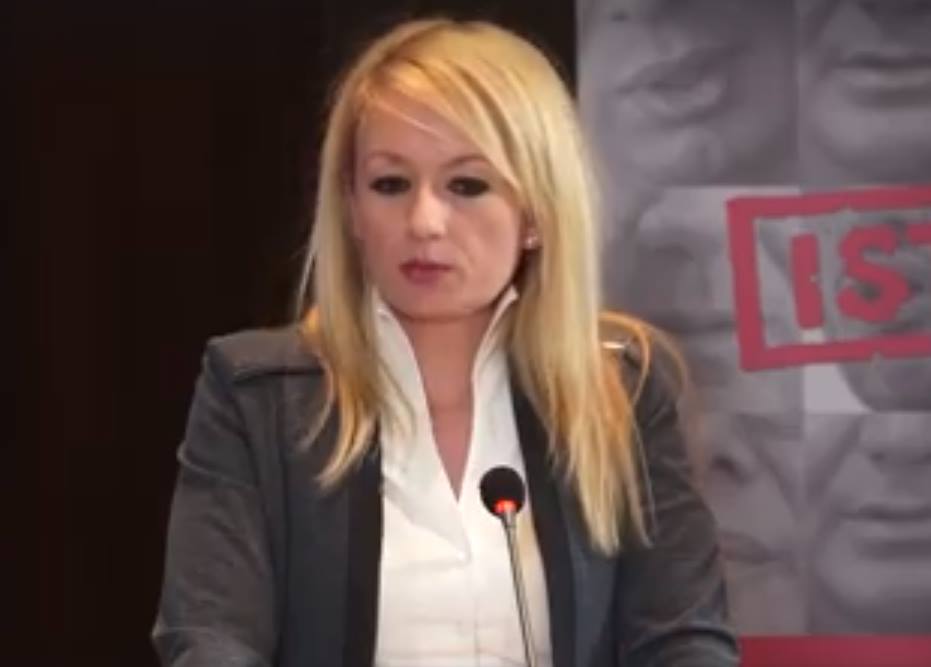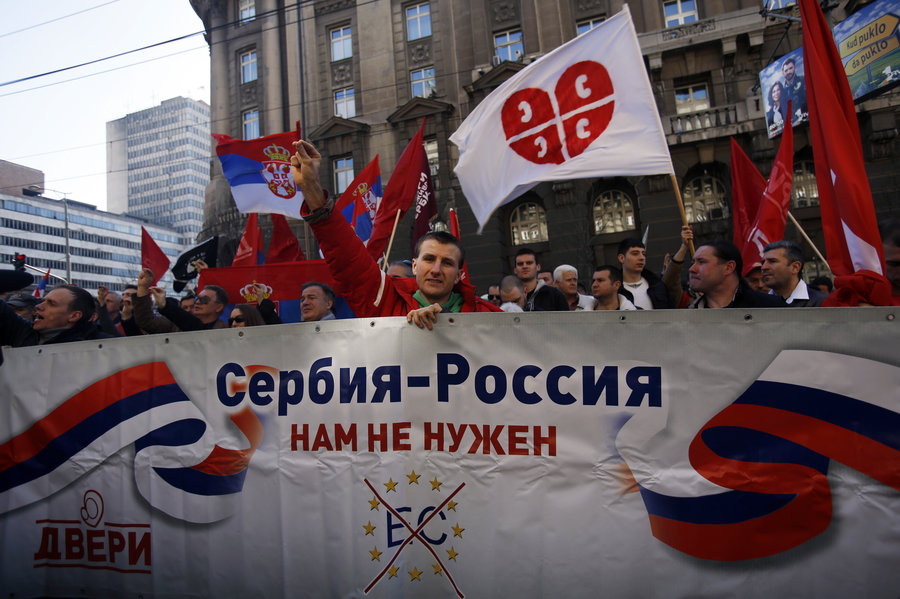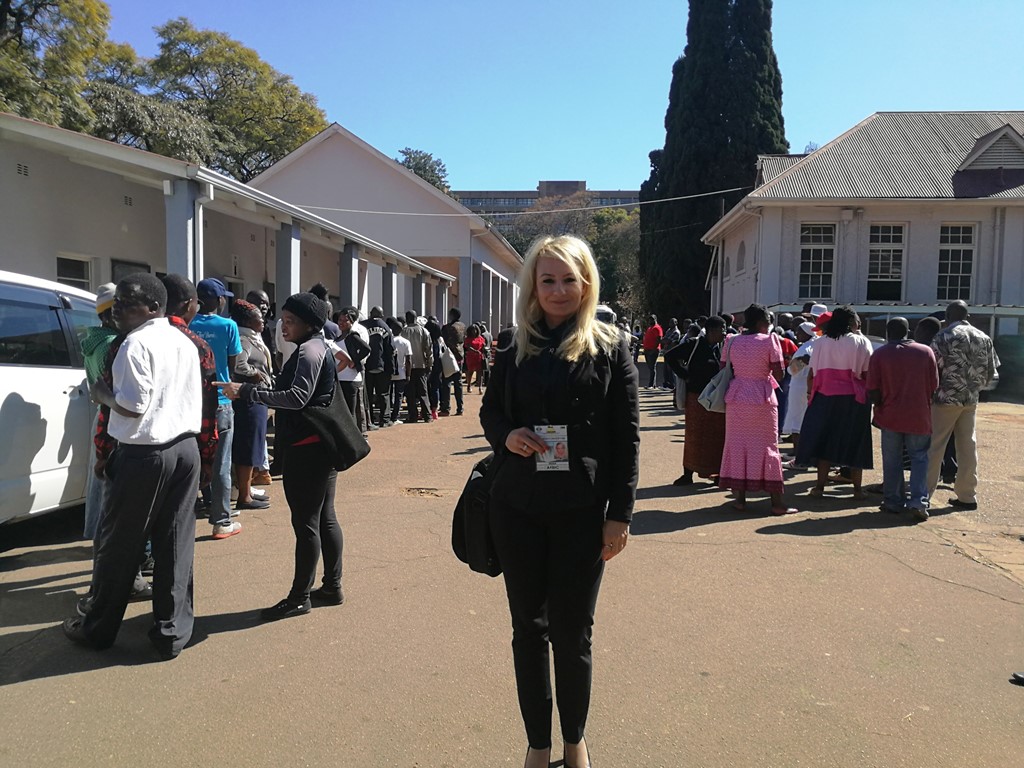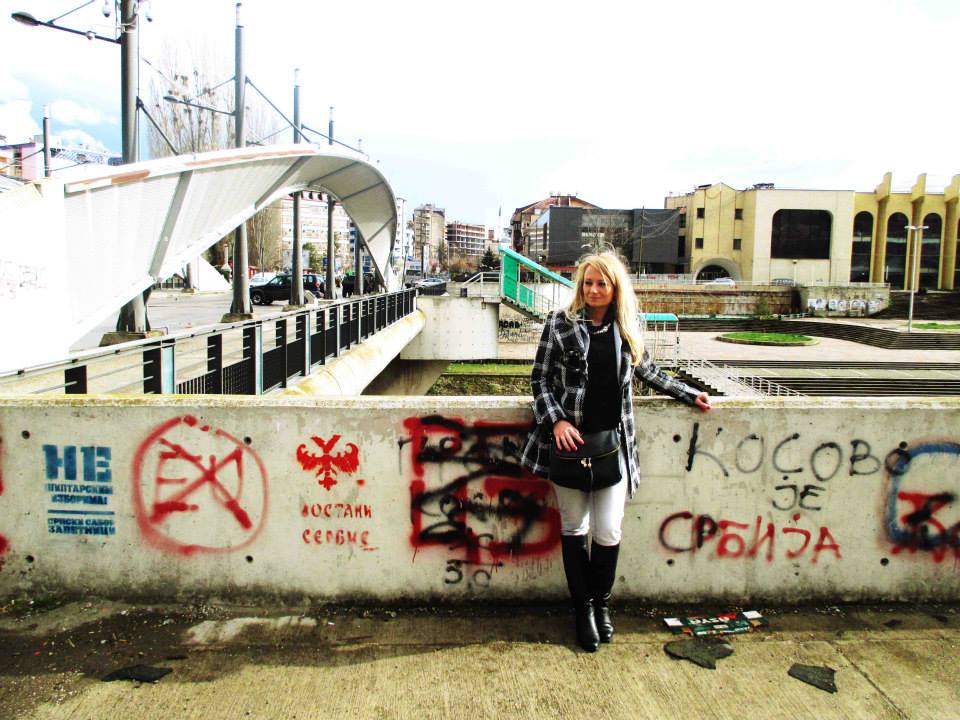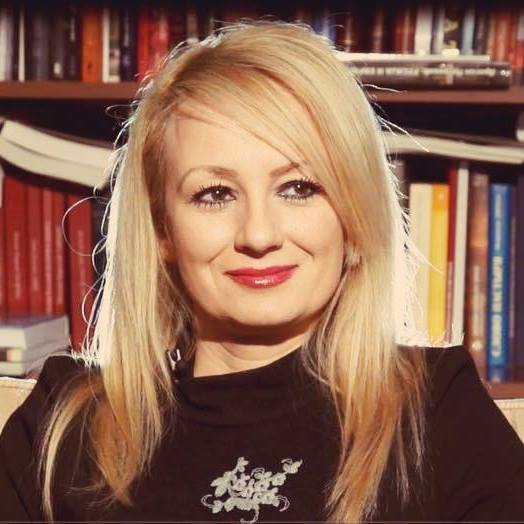Analyst on Hacking Accusations Against Russia: ‘West Is in a Kind of Paranoia’
Dragana Trifkovic for SPUTNIK
Previous week, Dutch Defense Minister said that the Russian Ambassador to the Netherlands had been summoned to the Foreign Ministry in light of the Dutch allegations that Russians had attempted to carry out a cyberattack on OPCW in The Hague. Sputnik spoke to Dragana Trifkovic, head of the Belgrade-based Center for Geostrategic Studies for more.

Да ли ће Вучић рећи Русима њет?
Драгана Трифковић, директор Центра за геостратешке студије

Пре неколико дана на север Косова су упале косовске специјалне јединице „Росу“ и заузеле језеро и хидроцентралу „Газиводе“. Такозвани председник Косова, Хашим Тачи, желео је да направи туристички излет на језеро и тиме покаже Александру Вучићу да може да дође на север Косова са специјалним јединицама, када год му то падне напамет. Наоружани припадници „Росу“ су том приликом заузели и приступне саобраћајнице, а четворицу Срба који су се налазили у просторијама „Центра за екологију“, су ухапсили и привремено задржали. Овај инцидент се десио баш у време док је у центру Приштине протестовала албанска опозиција из покрета „Самоопредељење“ Аљбина Куртија, која се противи Тачијевој и Вучићевој идеји о „разграничењу“. Хашиму Тачију је ова провокација послужила да скрене пажњу са тих демонстрација, а истовремено и да лупи шамар Вучићу и још једном понизи Србију. Након неколико сати, после сликања, вожње чамцем по језеру и разгледања природе, Хашим Тачи се повукао са специјаним јединицама са севера Косова. Постигнути ефекти су могли више него да га задовоље. Посебно што је Александар Вучић до сада небројано пута поновио како никада неће дати „Газиводе“.
Дејан Берић: Борбу настављам у информационом рату
Интервју Драгане Трифковић са Дејаном Берићем
Добар дан Дејане, налазимо се у Москви, па те молим за почетак да нам кажеш шта те је определило да се вратиш у Москву из Донбаса?
Тренутно у Донбасу нема великих борбених дејстава. Од последњег рањавања се нисам опоравио како треба. Метак који је погодио мој панцир, покренуо је камен у бубрегу за који нисам ни знао да постоји. Због тога сам сматрао да нисам у форми више да обављам посао који сам радио у војсци ДНР и решио сам да одем на лечење и да се опоравим до краја.

Избори у Зимбабвеу, шанса за нови почетак
Dragana Trifkovic, director of the Center for geostrategic studies
Први избори од ослобођења без Мугабеа
У Зимбабвеу су одржани слободни и демократски избори на којима је победио Емерсон Мнангагва. Поред избора за председника Зимбабвеа, 30. јула су упоредно одржани парламентарни и локални избори. Изборе су пропратиле одређене контрадикторности, које ћу покушати да објасним у овој анализи. Иначе, то су први избори у Зимбабвеу после ослобођења земље од колонијалне британске управе 1980. године, на којима није учествовао бивши председник Мугабе. Зимбабвеански револуционар и политичар, Роберт Мугабе, владао је последњих тридесет седам година земљом. Његова владавина је окарактерисана као ауторитарна и имала је како позитивне, тако и негативне стране. Као позитивна страна, може се навести очување суверенитета земље и добар образовни систем, док су негативне последице везане за лошу економску ситуацију, велику незапосленост, хиперинфлацију и корупцију. Међутим, треба имати у виду да се Зимбабве налази већ годинама под спољним притиском, посебно од 2003. године када су јој Британија и САД увеле санкције због наводног кршења људских права. Наводног због тога што се ни Британцима ни Американцима не може веровати када су људска права у питању, јер ту тему користе за манипулисање зарад остваривања својих политичких и економских циљева. Сукоб бившег председника Мугабеа са Западом почео је још у време када је Тони Блер био на челу британске владе. Велика Британија се успротивила спровођењу политике аграрне реформе Зимбабвеа, коју је отпочео Мугабе. Она се огледала у подели обрадивог земљишта, које су до тада користили искључиво некадашњи колонијалисти, сиромашном становништву. На овом обрадивом земљишту су се производиле житарице и дуван, и та производња је чинила основу економске стабилности. Деведесетих година прошлог века, Зимбабве је у економском погледу добро стајао а за производне програме је примао помоћ и подршку од ММФ и Светске банке. Разлаз са Западом почео је након једностраног изласка Велике Британије из споразума са Зимбабвеом 1997. године, који је фактички значио неслагање са повратком земљишта становништву. Мугабе је овај потез схватио као непријатељски чин и убрзао је спровођење аграрне реформе, којом је одузето земљиште бившим колонијалистима и додељено становништву. Такви потези су довели до још већег заоштравња односа са Западом, што је као одговор довело до укидање подршке ММФ и Светске банке и увођење економских санкција уз политичку изолацију Зимбабвеа.
Председник Србије поштује мишљење Запада, став Русије га не интересује
Dragana Trifkovic eadaily.com
У септембру, у Бриселу треба да буду настављени директни преговори између председника Србије Александра Вучића и „председника“ сепаратистичког Косова Хашима Тачија о постизању „свеобухватног споразума о нормализацији односа“ између Београда и Приштине. Недуго пре почетка новог круга, Александар Вучић изјавио је да Србија, као резултат ових преговора, „неће добити ништа„. „Ако нам ништа не дају, шта да радимо … Према мојим прогнозама, то ће бити тако“, рекао је Вучић 29. августа.
Мишљење о томе како такво расположење шефа српске државе може да утиче на ток преговора, прокоментарисала је дописнику EADaily директорка Центра за геостратешке студије (Београд) Драгана Трифковић.
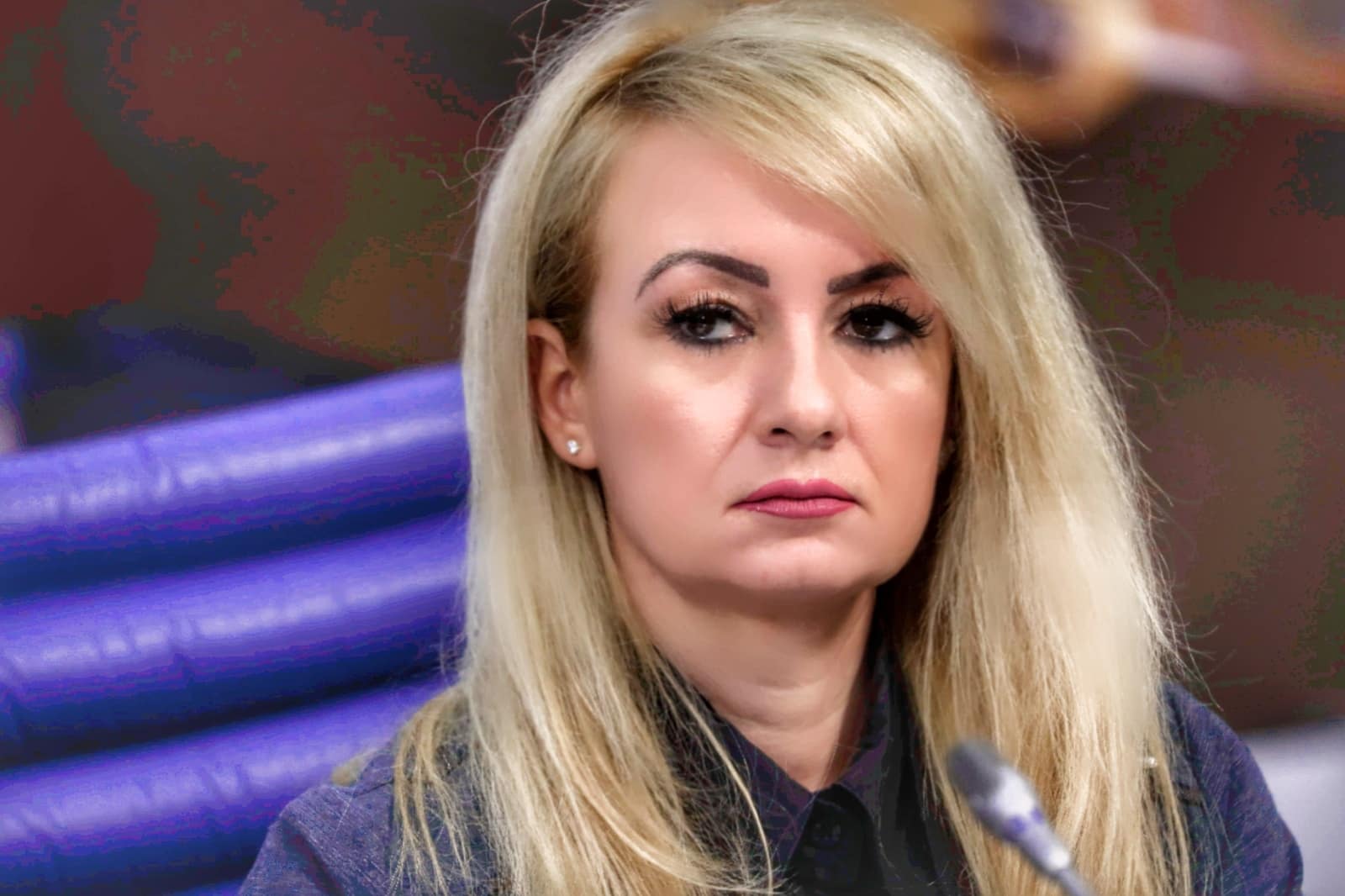
САД воде срамну пропаганду против Ирана
Драгана Трифковић, директор Центра за геостратешке студије за NEWS FRONT
Техеран је затражио од суда у Хагу да САД повуку сакнције, а позива се на договор о пријатељству из 1955. Да ли верујте у успех оваког потеза, да ли Техеран пре свега заиста рачуна на укидање санкција или смо сведоци једне медијско-политичке кампање и покушаја да се привуче пажња проблематици односа између тих држава?
Хашки суд је почео разматрање тужбе Техерана у вези са поступањем САД према Ирану. Одлука о овом случају би, према најави, требало да буде донета за месец дана. Од доласка Доналда Трампа на чело САД, дошло је до поновног заоштравања односа између САД и Ирана, иако су они били релаксирани постизањем нуклеарног споразума са Ираном за време Барака Обаме.
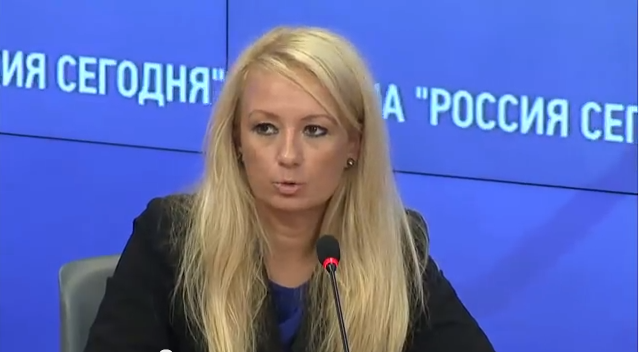
Вучић жели да уз помоћ проруског бирачког тела, уведе Србију у НАТО
Гостовање Драгане Трифковић, директора Центра за геостратешке студије у емисији „Србовање“. Вучић уз помоћ проруског бирачког теле жели Србију у
Western Media Silent About Detention of RIA Novosti Ukraine Head – Analyst
Dragana Trifkovic for SPUTNIK
Friday marks the 100th day since the arrest of Kirill Vyshinsky, the head of the RIA Novosti Ukraine portal, by Ukrainian authorities. Sputnik discussed this with Dragana Trifkovic, head of the Belgrade-based Center for Geostrategic Studies.
Sputnik: After 100 days in confinement what is known about Vyshinsky and the prospects of him being released?
Dragana Trifkovic: Unfortunately, we didn’t learn much about the arrest of Mr. Vyshinsky except the scarce explanations given immediately after the arrest that he was charged with high treason. Ukraine has been in a deep systemic crisis for years, and such cases only deepen this crisis and send a very bad picture to the world. I think that the international community should much more seriously deal with the issue of human rights in Ukraine. It is impermissible that they close their eyes in such cases. It is difficult to assess when Mr. Vyshinsky will be released because Ukraine does not adhere to international rules and norms when it comes to media freedom and the right of journalists to perform their job unhindered. We can only hope that the international public will take a clearer stand on this case and will demand that Ukraine respects human rights.
READ MORE: #TruthNotTreason: Kirill Vyshinsky’s 100 Days Behind Bars in Ukraine
Sputnik: In your view, what are the main reasons behind his confinement now?
КО СЕ У ОСМАНЛИЈУ УЗДА, ШТАПОМ СЕ НА ВОДУ НАСЛАЊА
Пише: проф. Митра Рељић
Разлози испољене забринутости представника Српске православне цркве, часних интелектуалаца којима је стало до очувања целовитости државе и идентитета народа, као и највећег броја Срба са Косова и Метохије (свих који нису интересно упрегнути да доказују другачије), крупни су и лако доказиви.


